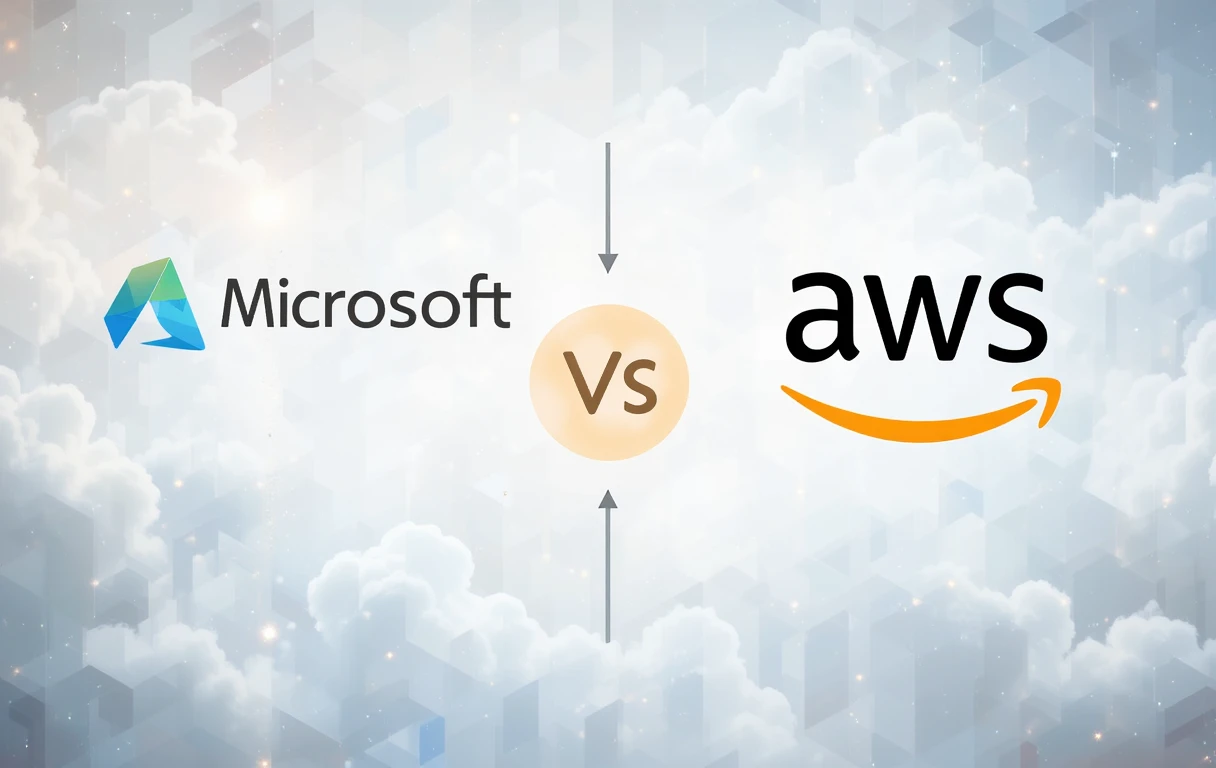Choosing the right cloud solution for your business can feel like standing at a fork in the road. Both Microsoft Azure and Amazon Web Services (AWS) are industry giants offering robust, scalable, and flexible cloud services. But which one is better suited for your unique business needs? Let’s dive into the key features, benefits, and considerations of Microsoft Azure vs. AWS, so you can make an informed decision.
Introduction: The Cloud Wars Unveiled
Over the last decade, businesses have shifted gears from on-premise data centers to cloud-based solutions. The debate over Microsoft Azure vs. AWS remains one of the most talked-about topics in the tech world. As two leaders in the cloud computing market, they hold the lion’s share, with AWS being the pioneer and Azure closing the gap rapidly. But deciding between the two isn’t a one-size-fits-all solution—it depends on your business objectives, technical needs, and budget.
What Is Microsoft Azure?
Microsoft Azure, introduced in 2010, is a cloud computing platform offering over 200 services, including computing, analytics, storage, and networking. What sets Azure apart is its deep integration with other Microsoft products, such as Office 365, Windows Server, and SQL Server. For businesses already operating within the Microsoft ecosystem, Azure often feels like a natural extension.
Key Features of Microsoft Azure:
- Hybrid cloud capabilities for seamless on-premise and cloud integration.
- Enterprise-grade security with multi-layered protection.
- Advanced AI and machine learning tools powered by Microsoft Research.
- Broad support for programming languages and frameworks.
What Is AWS?
Launched in 2006, Amazon Web Services (AWS) is the oldest and most comprehensive cloud platform. Known for its breadth and depth, AWS offers a staggering array of services, from computing power to machine learning, storage, and developer tools. Its popularity stems from its pay-as-you-go pricing model and global data center reach.
Key Features of AWS:
- Scalability and reliability, with over 200 fully-featured services.
- Global infrastructure with 99 availability zones across 31 regions.
- Powerful analytics and big data processing capabilities.
- Industry-leading security and compliance standards.
Performance Comparison: Speed, Scalability, and Uptime
When it comes to performance, both Azure and AWS excel, but there are nuances to consider.
- Microsoft Azure: Azure’s hybrid cloud solutions make it a standout choice for businesses needing flexibility between on-premise and cloud. Azure also integrates deeply with enterprise-grade apps like Dynamics 365.
- AWS: AWS leads in global availability, offering 31 regions compared to Azure’s 60+ regions but fewer availability zones. AWS is often seen as the go-to choice for companies needing ultra-high scalability.
For businesses focused on specific geographic regions, Azure’s rapid expansion into emerging markets may give it an edge. Meanwhile, AWS’s established global footprint remains unmatched.
Ease of Use: Which Platform Is More User-Friendly?
Ease of use is subjective and largely depends on your team’s familiarity with the ecosystem.
- Microsoft Azure: Azure’s interface is intuitive, especially for teams already accustomed to Microsoft products. Features like Azure Resource Manager and comprehensive templates simplify deployment and management.
- AWS: AWS has a steeper learning curve but offers unparalleled flexibility. The AWS Management Console is powerful but can feel overwhelming to new users.
If your team is already well-versed in Microsoft tools, Azure might feel like second nature. On the other hand, AWS’s extensive documentation and training resources help ease the onboarding process.
Pricing Models: Which One Fits Your Budget?
Pricing can be a major deciding factor for businesses evaluating Azure vs. AWS.
- AWS Pricing: AWS operates on a pay-as-you-go basis with no upfront costs. While this offers flexibility, it can result in unpredictable bills without proper cost management.
- Azure Pricing: Microsoft Azure offers a similar pay-as-you-go model but often provides discounts for existing Microsoft users or those who commit to longer-term contracts.
Azure’s commitment to hybrid cloud solutions often makes it a cost-effective choice for enterprises, while AWS shines for startups and developers needing quick scalability without upfront investment.
Security and Compliance: Which Is Safer for Your Data?
In the age of increasing cybersecurity threats, both AWS and Azure prioritize security, but they do so in slightly different ways.
- Microsoft Azure: Azure offers multi-layered security across physical datacenters, infrastructure, and operations. It also boasts more than 90 compliance certifications globally.
- AWS: AWS has a robust security framework with over 230 compliance programs. With services like AWS Identity and Access Management (IAM), it ensures strict access controls.
For highly regulated industries, Azure might be more appealing due to its enterprise-centric compliance features. AWS, however, provides similar assurances with a greater focus on global standards.
Integration Capabilities: How Well Do They Work With Other Tools?
One of the biggest advantages of Azure is its seamless integration with other Microsoft services. Businesses that rely on Office 365, SharePoint, or Dynamics 365 will find Azure to be an excellent fit.
On the other hand, AWS boasts integrations with nearly every third-party tool you can imagine, making it highly versatile for businesses using diverse software ecosystems.
AI and Machine Learning: Which Is Smarter?
Artificial intelligence is the future, and both Azure and AWS are investing heavily in AI services.
- Azure: Microsoft’s AI tools, like Azure Cognitive Services, enable powerful machine learning applications, image recognition, and natural language processing.
- AWS: AWS’s AI and machine learning offerings, such as SageMaker, are highly flexible, catering to developers building custom AI models.
Both platforms are neck-and-neck in this department, but Azure’s pre-built AI services might appeal to businesses looking for plug-and-play solutions.
Which Cloud Solution Fits Your Business Best?
The choice between Microsoft Azure and AWS ultimately boils down to your business needs.
- Choose Microsoft Azure if you’re heavily invested in the Microsoft ecosystem, need hybrid cloud capabilities, or operate in a regulated industry.
- Choose AWS if you prioritize global scalability, flexibility, and extensive third-party integrations.
Conclusion
The battle between Microsoft Azure vs. AWS isn’t about finding the “better” cloud platform—it’s about discovering the right one for your business. Both platforms bring unique strengths to the table, and the ideal choice depends on your goals, budget, and existing infrastructure. As cloud computing continues to evolve, investing in either Azure or AWS ensures you’re partnering with a market leader shaping the future of technology.




